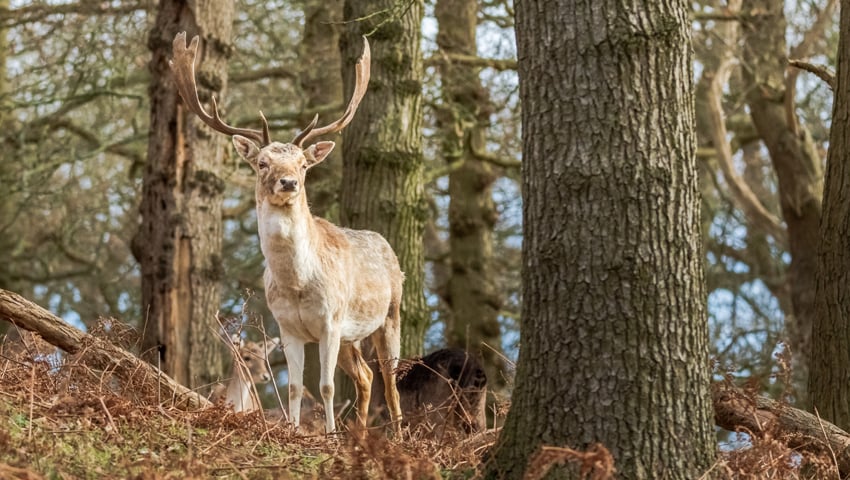Some of the UK’s and the world’s rarest fossils are set to be protected with the declaration of a new National Nature Reserve in Leicestershire.
Bradgate Park and Swithland Wood National Nature Reserve in Leicestershire is key to the first chapters of England’s geology. It contains rare examples of fossils from the Precambrian Period more than half a billion years ago, showing evidence of early marine lifeforms.
Bradgate Park is the only National Nature Reserve where you can find fossils of this age. These fossils, known as the Ediacaran biota, are among the first evidence of complex life on Earth and helped revolutionise our understanding of how life evolved and resolving the paradox of Darwin’s ‘missing link’. Darwin had suggested as part of his theory of evolution that the Precambrian seas must have hosted life, but this had never been proved until Precambrian fossils were discovered.
The area is steeped in history with much of the land formed from a medieval park containing fallow and red deer alongside oak trees which are up to 800 years old. The site includes important grassland habitats, alongside some of the only remaining heath in Leicestershire.
Swithland Wood, as well as including former Swithland Slate quarries, is an important ancient woodland habitat containing trees which provide homes to mammals, birds and insects including green and great spotted woodpeckers, the rare ‘Charnwood spider’ and small heath butterfly.
This declaration, announced by Natural England, also marks the start of National Nature Reserves Week, celebrating England’s most important places for nature with events taking place across the country. Bradgate Park and Swithland Wood becomes the 220th National Nature Reserve in England, altogether this encompasses a total area of over 109,000 hectares – approximately 0.8% of the country’s land surface.
Tony Juniper, Chair of Natural England, said, “This National Nature reserve at Bradgate Park and Swithland Wood is not only an important step for nature recovery, but being so close to Leicester is also a great example how we can make nature accessible for people living in our cities. The reserve will protect geological and archaeological treasures and create a bigger and better-connected area for wildlife. It also presents a reminder of how working together in partnership can drive nature recovery at scale, in the process helping to achieve our ambitious national environmental targets.
“National Nature Reserve status will help to protect this site for the future and today’s launch is a fitting start to National Nature Reserves week, which offers a chance for people to celebrate our wonderful natural world and to learn more about these fantastic natural treasures that are protected across the country for everyone to enjoy.”
James Dymond, Director of Bradgate Park Trust, said, “This is a landmark moment for Bradgate Park and Swithland Wood. They are home to some of the oldest fossils and rocks in England and to have the site’s conservation value recognised in this way is a fantastic achievement.
“For Bradgate to be part of His Majesty The King’s series of National Nature Reserves is a real honour and I’m extremely grateful to the teams of professionals, specialists and volunteers who have worked together to make this achievement possible.
“As well as being a Green Flag Heritage Site, we’ve now got a nationally recognised nature reserve too which we hope will raise the profile of our geological history and its importance.”
